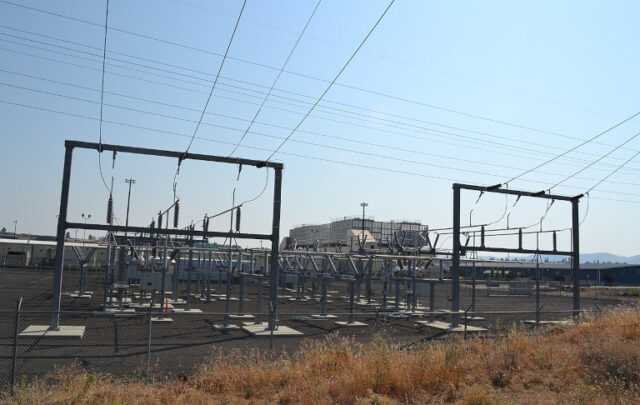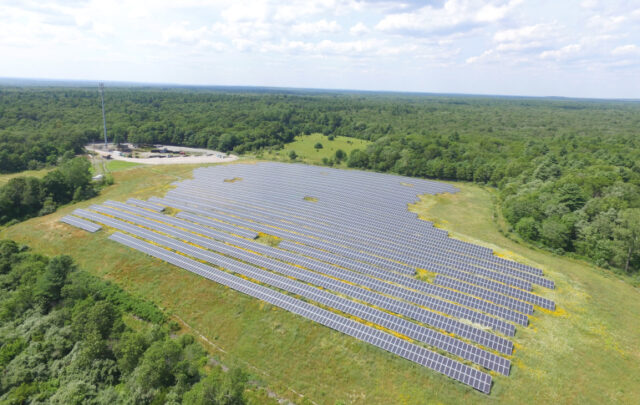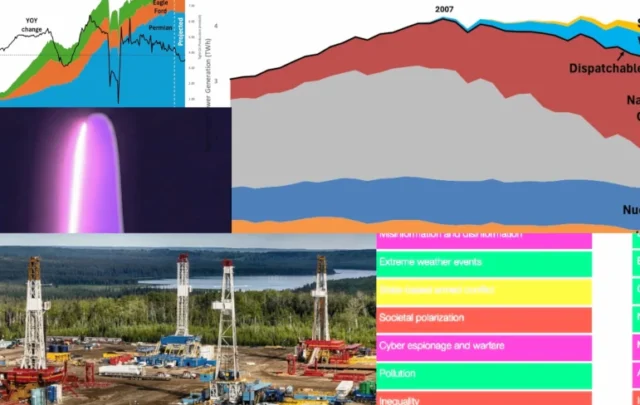 One of the things I’ve been arguing for years is that most people in the developed world, given a perceived lack of alternatives and no narrative to explain change and sacrifice, will do almost anything to keep their present way of life. I point out that if they become cold enough most people would shovel live baby harp seals into their furnace to keep warm, while carefully justifying why this is reasonable and necessary and probably convincing themselves that baby harp seals like to be burned alive.
One of the things I’ve been arguing for years is that most people in the developed world, given a perceived lack of alternatives and no narrative to explain change and sacrifice, will do almost anything to keep their present way of life. I point out that if they become cold enough most people would shovel live baby harp seals into their furnace to keep warm, while carefully justifying why this is reasonable and necessary and probably convincing themselves that baby harp seals like to be burned alive.
I have been thinking much about this metaphor lately, as the tone of the discussion of nuclear power has crescendoed along with events in Japan. Because I believe that our desire for comfort and security will override our ethical considerations unless we conceive a larger, coherent narrative that enables a different outcome, and because such a narrative has not emerged, despite my and others’ best attempts to write it, I see nuclear power, lots more deepwater offshore drilling in environmentally sensitive spots, natural gas drilling in my own neighborhood and drilling in ANWAR among other things as largely a done deal, with some caveats based on timing of events (more on this in a moment). I also see them as largely ineffective as a response to our energy and environmental crisis. The fact that they will not significantly alter or stave off our present situation has nothing to do with whether or not we will do these things, however.
Let me be clear – I would rather not see ANWAR touched. I believe that offshore drilling, if done at all, needs to be done with extreme ecological care – and I don’t anticipate that care will be taken in the race to the bottom that I do not want a natural gas well on my property or adjacent to it – and then thirty more as each individual well is rapidly played out and more wells must be drilled. I do not think that nuclear power plants are a good idea in a society enduring a gradual decline into a lower state of function – they require a very stable and energy intensive infrastructure to maintain safely, and we are not going to have that society. I do not think that radiation risks, especially to children are trivial – even if less dangerous than some other things. Moreover, I do not believe we can afford either the carbon or monetary upfront investment that nuclear plants require – the first decade and more of nuclear operations is spent paying off the heavy carbon and fossil fuel investments in them, and that time scale simply doesn’t work in a depletion and warming scenario – the net EROEI simply isn’t valuable enough. Moreover, as I wrote, most of our plans in a society with declining wealth, declining resources and a destabilizing climate, must work well in case of failure – they must take into account the regular and likely failures that accompany a less stable society. A half-built nuclear plant is not a useful thing. A full built nuclear plant that has to be taken offline because expensive repairs cannot be effected is not a useful thing, and is, indeed a dangerous one as Dmitry Orlov rightly points out.
On the other hand, I do not think that the present disaster in Japan will have a death toll that even approaches the death toll from our coal habit. I do not think that the dangers of nuclear power are as great as the dangers of our present, ecologically unstable ways of generating electricity. I do not think that local water contamination from hydrofracing is nearly as big a danger to me as water contamination from mountaintop removal coal mining is to people in West Virginia. The Macondo oil spill was a tragedy, but not enough of a tragedy to get Americans out of their cars. Much was written about how people were depressed, angered, hurt by it – but those are emotional reactions, and they come cheap. At the same time as the Macondo spill, American oil consumption was rising again. At the same time that legions of “environmentalists” will come out arguing about the evils of nuclear power, they will be cooled and comforted through the summer by coal plants.
Several years ago I was invited to protest a coal plant with a group of environmental activists. Speaking as someone who believes in civil action even when it is largely pointless, I agreed – it had been a depressingly long time since I’d been arrested for anything, and the occasional civil disobedience arrest is good for the soul, and coal is bad for it. Most of my fellow activists were students, and they invited me first to address the student group. I asked them how much electricity they use. They spoke proudly of their local diets, bikes and cloth bags. I observed that none of those things has much to do with electricity – on the other hand, electric devices, refrigeration and using a dryer have a lot to do with it. I invited them to measure their electric usage, and to ask themselves what they will give up to use 1/2, 1/3, 1/4. Since nearly 3/4 of this particular area’s electric usage comes from coal, that was what was required – that they drop their usage by 3/4. That everyone else do so – that the library that was open all night for their study convenience be closed at night, so to reduce energy usage. That they use their computers dramatically less, in order to reduce both their personal use, but also the huge servers that create most of the internet’s impact. Reduced use of refrigeration – how will they eat with a fridge the size of a dorm fridge – holding all their food, not just the private stash in their dorm, but their share of what exists in the communal cafeteria, and at home.
I asked them how many of them were prepared to give these things up in order to end coal usage, to use that much less energy. About half of them raised their hands, divided between hesitant and enthusiastic – these were smart, educated and committed young people, and that’s a hard road to travel. Then we talked about how. I asked how could this be made easier – how could infrastructure changes make it more possible. They were full of ideas. I asked how many of them would have done so after 9/11, if they were asked to do so rather than go to war in the Middle East – they all raised their hands. I asked how many of them would be prepared to do this if everyone else were doing it. All the hands rose. I asked how many of them would be willing to do it if they understood it as a way of saving future generations, their own future children and grandchildren. Most of them did. What if they were told they were heroic, that their acts were ones of courage and heroism, rather than just being weird things done in the dark by themselves.
By the end of this conversation, everyone spoke of ways that this could happen, of acts that could permit their march on the coal plant to be legitimate, honest, a true call for the closing of it, but not the replacement of their energy source either with a fantasy of perfection (the dream of endless solar and wind that has no basis in physical reality) oor with the denial that leads inevitably to the opening of another coal plant, equally toxic.
Now I’m a fairly good speaker and you could easily argue that those students had no intention of acting, that they were enthused by the rhetoric of the moment, and went home and plugged in their cell phones and turned on their laptops and stopped caring. That may well be true – the problem with stirring up passions is that most people don’t stay stirred without a coherent narrative, without a story to tell themselves to answer the question “why am I doing this hard thing?”
I have, however, seen this take hold in many places before, and stay rooted. The Riot for Austerity which ran in 2006-2007, for example, had at its peak more than 1000 people who daily were excited about figuring out how to reduce their energy consumption to 1/10 of the American average even without infrastructure changes, without waiting for the monorail and the subsidized solar and everything else we are promised but can’t wait for. What we found doing this, among people in many countries, in city, suburb and countryside is this – that as long as it is part of a story, changing your life radically is wholly possible. You can endure anything – as long as it is part of a story of heroism and transformation.
This isn’t news, of course. Your grandparents did it to fight the Nazis in Russia, in Britain and the US. Your great-grandparents did it to change the world politically in unions and labor movements. Your great-great many times great grandparents may have climbed on tiny boats with their children and endured hunger, sickness, disease to do it, or gone to war on principle, or refused to go to war on principle, or endured martyrdom and personal suffering for their idea of right. It is a human habit to give things up, to make sacrifices, to endure, to act to accept and even embrace hardship – for a reason, because they understand it to be right.
Historian Timothy Breen has written about the history of these acts in America – about “rituals of non-consumption” that replace and provide equal satisfaction over the prior acts of consumption and usage. That is, we get together with our neighbors and try and figure out how to do without gas or sugar or meat, and that is *just as satisfying* as having the sugar or meat or gas. The Riot for Austerity found this as well. Perhaps it is time to bring back the Riot.
I do not for one moment believe the dirges being sung for nuclear power, any more than I believed the ones sung for offshore drilling last year. I do suspect that delays in nuclear power plant construction, in permitting for drilling rigs may hasten the exercise of decline, that new regulations and rules with reduce the EROEI and increase upfront costs that make it less likely that these things will come online. What events have done is not make these choices impossible, but upped the distance between our moment of panic “there are rolling blackouts…there is no gas at the pump” and any response “well, the next generation of power plants will come online in 4 years, if the funds come through, so can you wait until then for light and to run the laundry?”
Faced with that situation, we get to the harp seals. Or not – if there is an alternative way. Because it is a great deal more work to construct a narrative that is fundamentally a lie, that shoves that lie in your face daily with big brown eyes and flippers, than it is to find a truth you can live with. Our mountaintop removals stand in mute attestation to the fact that we can lie pretty damn well. Our human history stands up and points out that we do not always choose to lie, that those who tell the truth sometimes speak loud enough to be heard.
Nor do I believe for one moment the off-quoted claim that we are too spoiled, unlike our grandparents and ancestors to give things up. I think, rather, that no one has asked, no story has emerged – despite my attempts and the attempts of others to write one that takes into account events. Perhaps our collective attempt to disseminate such a story, a new way of life will evolve, as events do. Perhaps we can offer collectively, as we repeat, embellish (truthfully – the good news is that is not those of us on the ecological side of things who need to lie) and expand the narrative that says “You do not have to do that, you can choose these things instead…and come join those of us making more of less.” We need such a story more than we need nuclear power or coal power. We need it nearly as much as we need air.























